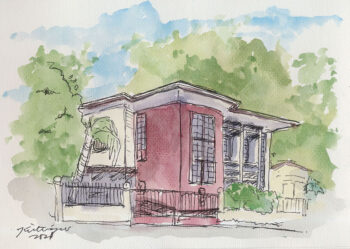
ZAMBOANGA CITY (MindaNews / 26 June) — These days, the buzzwords in the region are “extension” and “moral governance.” Back in our time in the Autonomous Region in Muslim Mindanao (ARMM), it was “reform.” The ARMM reform was made possible because, in those days, the man in Malacanan, President Noynoy Aquino, was in favor of it.
On one hand, he put a neophyte and non-traditional politico Mujiv Hataman from Basilan in charge of the ARMM in 2011. Perhaps he was thinking of turning over ARMM to a future entity in better shape than before. On the other hand, he pursued the peace process even if there were many obstacles and opposition. So when the Comprehensive Agreement on the Bangsamoro (CAB) was signed in March 2014, we shared the tears of joy of that Moro lady captured on television during the CAB signing.
Who wouldn’t? After 17 years of struggle and uncertainty, and of patience and persistence, we are living witnesses to the CAB signing of the grounds of Malacanang Palace. Whether one is for or against the Moro Islamic Liberation Front (MILF) is irrelevant. This is for the good of Mindanao and the country. So we share the joy and cheers. Even heaven agreed with the downpouring of rain. In our culture, rain is propitious of what is to come. If this was a wedding, our belief is the marriage will be blessed with offspring and for perpetuity. So we hoped for the same blessings for this “political wedding” of sorts. Beyond politics, the Bangsamoro heralds a new construct – peace over war and violence. This dovish mentality will underpin the asymmetrical relationship between national Filipino and regional Bangsamoro governance. But this new dovish construct, therefore, implies not just institutional reforms.
ARMM was an institutional reform. But institutions function not just on laws and politics, or by people running them and the people for whom they are governed; it is also cultural and attitudinal reforms. In Islamic theology, we take the Sunnah (tradition) of Prophet Muhammad (saw) – In a way, the building of Bangsamoro is akin to the establishment of Islam in the Arabian Peninsula. Islam did not start as a society; it started in the hearts of the first Muslims. So did the idea of Bangsamoro in the hearts and minds of its people.
The ‘hijrah’ was not just a physical migration from Makkah (Mecca) to Madina (Medina), it was a transformation from individual preparedness to the establishment of the first ummah (community). We are now transitioning towards the promised idea of “Bangsamoro,” to our own little “ummah,” on this side of the world. If we stick to the example of the Prophet of Islam, then the success of Bangsamoro lies in the “Jihad Akbar” (greater struggle) of its people. That great struggle starts with the mind and heart.
We hear the echo of the UNESCO preambles; if war begins in the minds of men then it is in the minds of men that the defenses of peace must be built. If Bangsamoro means having a peaceful society and good governance (albeit moral governance), we need to walk our talk about it. We should learn to look forward more, to spend more time creating that better future we so desire. We should start thinking as Moro and less as Meranaw, Maguindanaoan, or Tausug. If we continue to dilly-dally with this, then the idea of inclusive and fair Bangsamoro will be reduced to ethnocentrism, clique, graft and corruption, and incompetence that haunted the existence of the previous political experiment which Malacanan described as a “failed experiment” back in 2011.
Bangsamoro is not just about our leaders, importantly, it is about us Moros as citizens. A democratic Bangsamoro works if citizens assert their sovereign right, holds their leaders accountable, and demand better governance from their hired bureaucrats. We should not let the culture of impunity terrorize our society again. Therefore, the long-term solution is to disarm the mind. Optimists say it’s simple economics, supplies will be short-lived if there are no demands.
After the mental frame, importantly, we should look into our hearts. What good is a changed mind to a Moro with a lukewarm heart? In the words of Tony Buzan, a “change mind” is different from a “change maker.” A “change mind” often rationalizes and colludes with the status quo so long as self-interest is served. As long as we do not transition – from “change mind” to “change maker” – Bangsamoro will end up as an unacceptable status quo or even worse. Therefore, as we move from “lesser jihad” (armed struggle) towards Bangsamoro, we should remember, we are entering the “greater jihad,” the struggle against self – against “nafs” (selfish desire), “jahiliyyah” (ignorance) and “zulm” (oppression). In the words of Abu Bakr, the first Caliph of Islam, “…to fight against your evil self is greater Jihad.” This is the morale of governance, whether personal, institutional, or communal; political or cultural, legal or developmental.
Here lies the success of Bangsamoro. Take education. As we transition to Bangsamoro, perhaps what we need is not just skills training to keep up with the demands of 21st-century global village; but the reformation of the heart. In the words of Aleem Dr. Hamid Barra, “the heart of reformation is the reformation of the heart. In a similar vein, Dr. Ustadz Alzad Sattar once said, “the heart of education is the education of the heart.”
“Reformed hearts” are not when schools, districts, and divisions are viewed as private, conjugal or family propriety and; recruitment, selection, and promotion are viewed as family succession; and MOOEs are private purse. These are tangible manifestations of a “diseased heart.”
Prophet Muhammad SAW cautions us, “…Beware! There is a piece of flesh in the body, if it remains healthy the whole body becomes healthy, and if it is diseased, the whole body becomes diseased. Beware, it is the heart” (Sahid Bukhari 52). In another hadith, we are reminded, “When the believer commits sin, a black spot appears on his heart. If he repents and gives up that sin and seeks forgiveness, his heart will be polished. But if (the sin) increases, (the black spot) increases” (Sunan Ibn Majah 4244).
The next time we hear or open our mouths about reform, Bangsamoro or extension, we should ask, “how’s our heart today?”
(MindaViews is the opinion section of MindaNews. Noor Saada is a Tausug of mixed ancestry – born in Jolo, Sulu, grew up in Tawi-tawi, studied in Zamboanga and worked in Davao, Makati and Cotabato. He is a development worker and peace advocate, former Assistant Regional Secretary of the Department of Education in the Autonomous Region in Muslim Mindanao, currently working as an independent consultant and is a member of an insider-mediation group that aims to promote intra-Moro dialogue)







